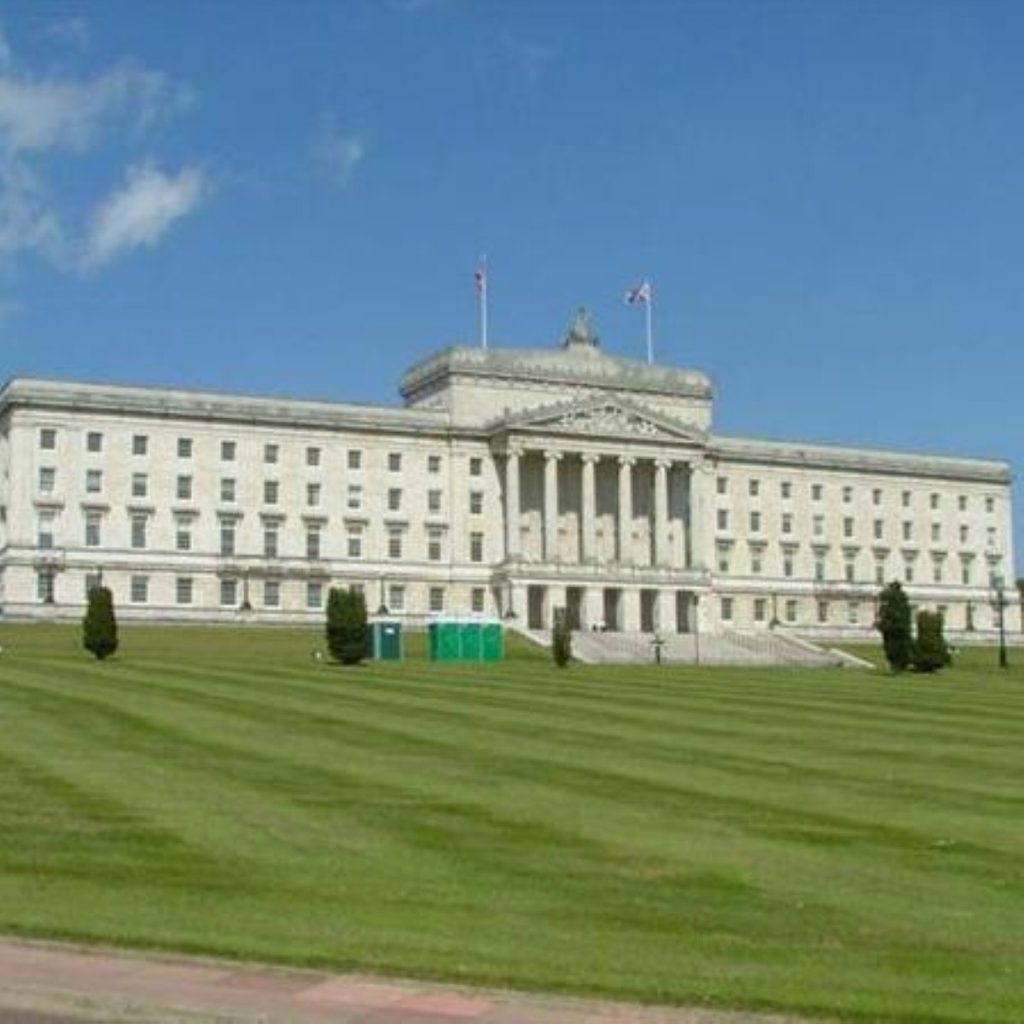Parliament to approve devolution on May 8th
Parliament will today rush through legislation in order to delay devolution to Northern Ireland ahead of a power-sharing executive on May 8th.
MPs from across the House of Commons have agreed to set aside normal business and pledged their support for the bill. Leader of the house Jack Straw declared the Commons “will not adjourn until Royal Assent has been signified.”
Northern Ireland (St Andrews Agreement) (No 2) bill is necessary to amend the original St Andrews Agreement, which stated power-sharing had to be agreed by March 26th or Westminster would suspend devolution indefinitely.
Mr Straw told the Commons yesterday: “I appreciate that this is an exceptional situation – but these are exceptional circumstances.


“If the representatives of unionism, republicanism and nationalism can reach agreement on what the whole House will hope will be a final political settlement in Northern Ireland through a shared future, it is right that this House should do all that it can to facilitate that in the interests of the people of Northern Ireland.”
Shadow leader of the House Teresa May pledged the Conservatives would support the bill and joined Mr Straw in paying tribute to the work of the politicians who made Monday’s agreement possible.
David Heath also indicated the Liberal Democrats will support today’s legislation, describing the May 8th agreement as “extraordinary and welcome news”.
The amendment, which cites “exceptional circumstances”, must be on the statute books by midnight on Tuesday for a power-sharing executive to assume power at Stormont in six weeks time.
The DUP refused to agree to form a power-sharing government with Sinn Fein in time for yesterday’s deadline. However, Northern Ireland secretary Peter Hain refused to countenance the process had been anything but a success, pointing to the unprecedented cooperation between DUP leader Ian Paisley and Sinn Fein’s Gerry Adams.
Ten years after Mr Paisley declared he would never sit down with Gerry Adams, the two leaders did in fact yesterday meet for their first ever face-to-face meeting. Although they did not shake hands, the two held “cordial” private negotiations before hosting a joint press conference.
Here, with Mr Adams wearing an Easter lily badge to commemorate the 1916 uprising, the two radically opposed leaders agreed to put the violence of Northern Ireland behind them and form a power-sharing executive.
The DUP argued the six week delay is necessary for Sinn Fein to prove their commitment to cooperate with the police. The St Andrew’s Agreement, which set out the timetable for restoring devolved power to Northern Ireland, rested on both power-sharing and support for policing and rule of law.
Mr Paisley yesterday pledged the DUP’s full support for the government while Mr Adams spoke of a “new era” in Northern Ireland politics.
Speaking alongside the DUP leader, Mr Adams said: “While it is disappointing that the institutions of the Good Friday agreement have not been restored today, I believe the agreement reached between Sinn Fein and the DUP … marks the beginning of a new era of politics on this island
Mr Paisley said: “I am committed to delivering not only those who voted for the DUP but all the people of Northern Ireland,” he stated.
“We must not allow out justified loathing for the horrors and tragedies of the past to form a barrier in creating a stable future for our children. We must never forget those who have suffered during the dark period from which we are – please god – now emerging.
“We owe it to them to craft and build the greatest possible future and ensure there is genuine support fore those that are still suffering.”
Describing it as a “very remarkable day”, the prime minister Tony Blair welcomed Monday’s events. He told MPs: “In a sense, everything we have done over the last ten years has been a preparation for this moment, because the people of Northern Ireland have spoken through the election.
“They have said we want peace and power-sharing and the political leadership has then come in behind that and said we will deliver what people want.”
Both the DUP and Sinn Fein will now approach the chancellor Gordon Brown to request more financial aid, necessary to allow the new assembly to “hit the ground running”, Mr Paisley said.
The new executive will be led by Mr Paisley as first minister and Sinn Fein’s Martin McGuiness as deputy first minister. They will work alongside a further three DUP ministers, two Sinn Fein, two UUP and one SDLP.
Stormont has been suspended since October 2002 following allegations of an IRA spying ring and Northern Ireland has been governed by direct rule since.
The new executive will be in place before Mr Blair leaves Downing Street, allowing the prime minister the opportunity to point to Northern Ireland as his legacy.









